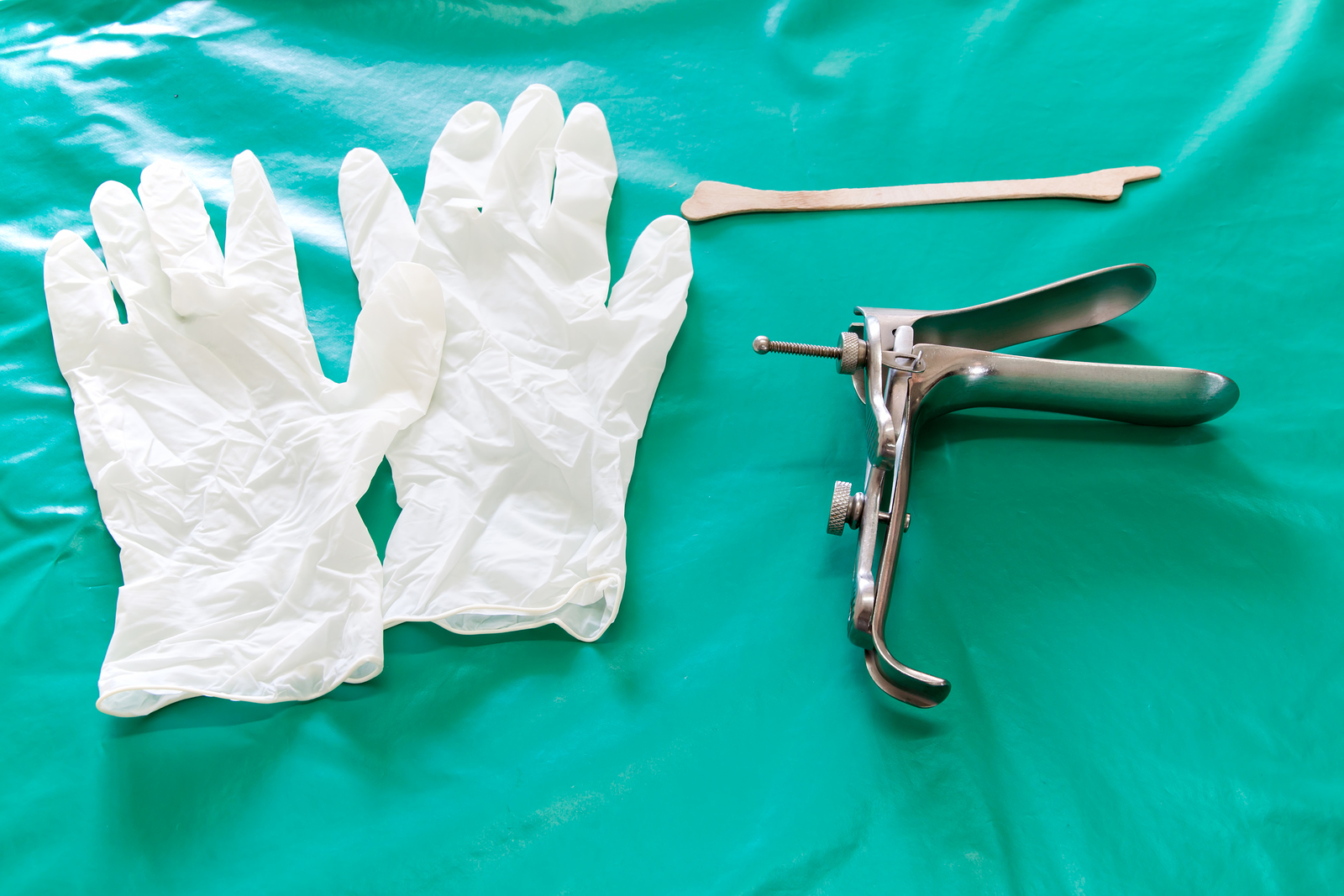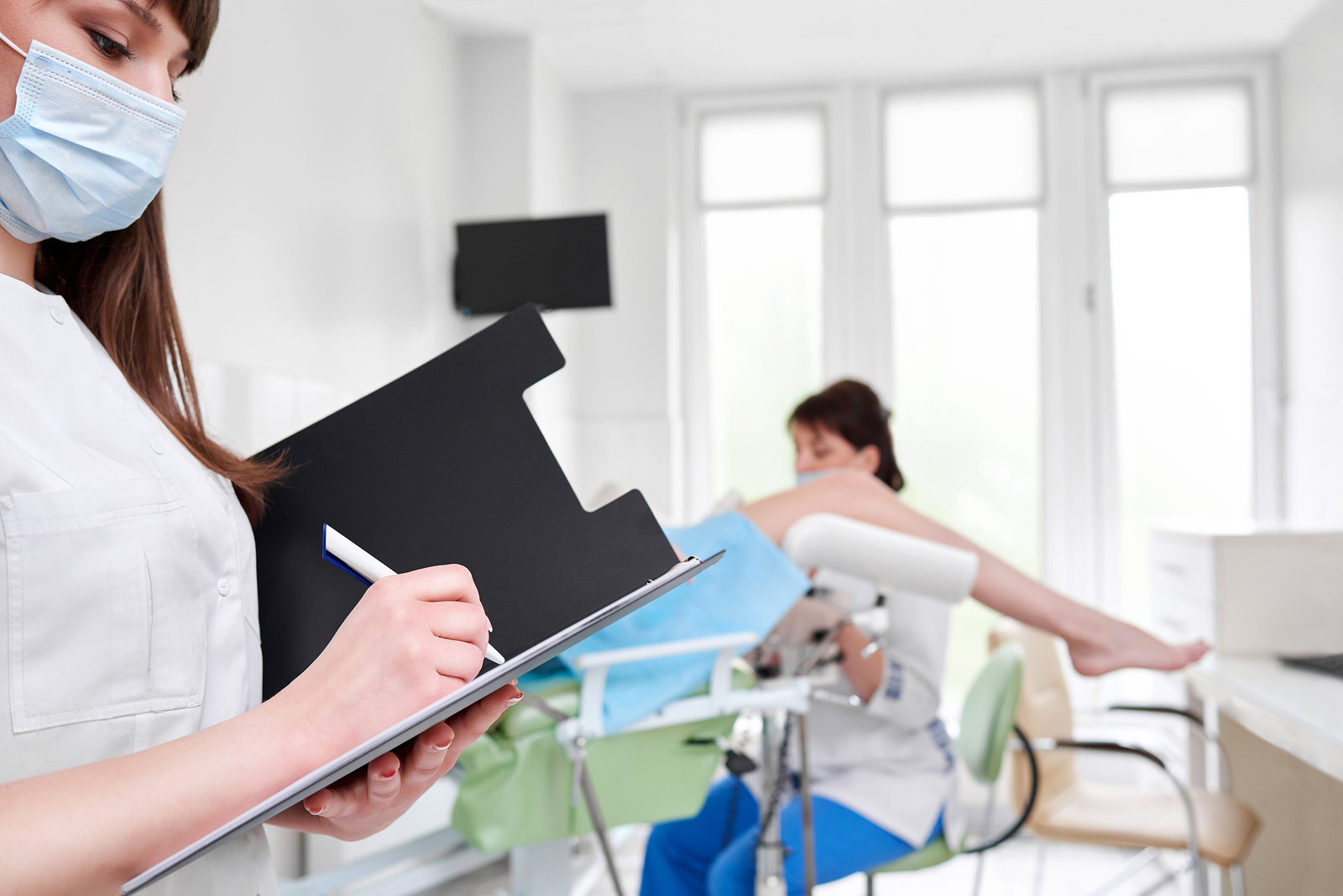The last thing any woman wants to hear is that her Pap results aren’t normal. Those words can prompt anxiety and fear, and even leave you convinced that your practitioner has gotten you confused with another patient. If your pap test has always been normal in the past, and if you always practice safe sex, how can this be possible? But an abnormal Pap smear doesn’t have to mean the worst — in fact, it can be the very thing that saves your life! Let’s take a closer look at this important test.
The Pap Smear: It Can Save Your Life
Both traditional and holistic practitioners advocate for a yearly pelvic exam and Pap smear. Why? The answer is that this standard of practice has been proven to be one of the best preventative measures found to protect a woman’s health and life. We learn so much during an annual exam that can be used to prevent problems down the road.
The Pap smear test was developed by, and named for, Dr. George Papanicolaou. It’s purpose is for the early identification of cervical cancer. Soon after it’s introduction, the Pap smear proved effective at detecting precancerous lesions, which represent early and still very treatable indicators of cervical cancer risk. Scientists wish they could develop a screening device as effective as the Pap smear for identifying precancerous breast changes.
Pap testing has saved the lives of many women. Cervical cancer was once the leading cause of cancer-related death for women in the United States, but over the past 60 years it has dropped to 15th, due to Pap screening. It’s an easy, and for the most part, reliable test to perform. See our article on routine Pap testing and pelvic exams for an explanation of what to expect during these procedures, along with a description of the new Thin Prep Pap.
Since there is so much potential benefit in having this simple test completed, it’s surprising that women sometimes get mixed messages about its worth. Cervical cancer claims the lives of around 270,000 women each year worldwide, 3700 in the United States alone. At the Women to Women clinic we encourage yearly examinations and regular Pap screenings for our patients. The new recommendations that pap smears be completed only every three years leaves many women confused and thinking they should not come for annual exams. This is simply not true! Although the pap may not be necessary, an annual exam is still essential. It’s a great time to talk about how a woman can maintain the best health possible, and other pelvic abnormalities can be ruled out if changes have occurred.
Prevention and Detection Start Early
There are a few preventative measures that young women can take to decrease their health risk: delaying their first sexual encounters and limiting the number of sexual partners they have. All women, even young women, are at risk for all sexually transmitted diseases, which makes discussing safe-sex practices with girls very important before they start having sexual relationships. I suggest that any safe-sex plan includes a commitment to a yearly exam and a Pap smear.
Young women are encouraged to have an annual pelvic exam and Pap test starting in their teens if they’re sexually active, and a STD screening be completed each time they encounter a new partner. If a woman is not sexually active, she should have a pelvic exam by the age of 21, with a Pap smear within one to two years after her first sexual experience.
At our clinic we like to meet with teenaged young women for a health interview and an informative and educated exam session about reproductive health prior to her first sexual encounter. If she does become sexually active, she will be better prepared emotionally to return for the next step, her first pelvic examination and Pap smear.
This initial meeting may be the ideal time to determine if this young woman would benefit from the HPV vaccine. With this kind of informal, but educational introduction, a young woman can be more comfortable and ready to take care of her body. This can help prepare her for a positive, worry–free and confident future.
Excellent nutrition is also an important part of prevention. We give our immune system a great advantage by maintaining a diet that’s high in folic acid, antioxidants, and essential fatty acids. Even when we eat well, we can support our cervical cell well-being by further enhancing our diet with good nutritional supplements.
How Often to Get Pap Testing Done
The American College of Obstetricians and Gynecologists (ACOG) recommends Pap screening annually until age 30, then every two to three years if a patient has had three sequential years of normal results and does not fall into a high-risk category (e.g., DES exposure, known or previously-detected HPV exposure, a prior history of cervical cancer or cervical intraepithelial neoplasia II–III, or an immunocompromised status). If a woman is taking hormones, we strongly recommend she be checked annually and her prescription monitored. The recommended age to discontinue Pap screening varies according to a woman’s situation, and this decision is one left, for the most part, to her gynecologist’s discretion. We are seeing more women in their 60’s and 70’s with STD’s so we may need to consider doing Pap smears longer on women, depending on their sexual situation.
At the Women to Women clinic, we recommend an annual Pap smear for routine screening of sexually-active adult women. Occasionally, we may suggest a more regular checkup if any minor abnormalities had been found on previous tests. The reason we suggest annual tests is because everyone’s risk factors can change over time. Changes in stress levels and immune response can also cause a previously normal test to become abnormal.
We view the Pap test, in many respects, as a general indicator of your overall health status. The presence of abnormal cervical cells indicates your immune system is weakened. Early testing prevents cervical cancer. When testing is delayed, you are at greater risk because the abnormal cell changes are not detected early.
If you have had your cervix completely removed, during a hysterectomy for example, and have no history of an abnormal Pap, it may be fine to discontinue the test. In our practice we continue to screen our patients at regular intervals. You might want to discuss this with your practitioner. Many more practitioners are leaving the cervix intact to help maintain the pelvic structure. In that case, Pap testing would need to continue.
Abnormal Pap Test Results
So what happens when you get an abnormal Pap reading? Let’s look at this together.
Ideally, you have a relationship with a GYN practitioner you know and trust. If so, your test results will be explained to you in a supportive and understandable way, and you will be encouraged to ask questions. If not, you may want to think about finding a provider you can feel more comfortable with, and who supports you.
You are likely to be notified of anything on your Pap test that is not “satisfactory,” If the cell sample from inside your cervix was inadequate, or less than ideal, the results will be reported as insufficient, and you may be called back for a new attempt. In a case like this, if you are menopausal or at low risk, re-sampling can often wait until your next yearly exam.
Occasionally a Pap report will show an infection caused by yeast or bacteria, or even some changes in your vaginal tissues due to low estrogen levels in menopause. These results are easily dealt with and are unrelated to HPV or cervical cancer.
The scale of abnormal Pap test results ranges from slightly atypical to high–grade cellular changes. Currently, the Bethesda system is used among pathologists and healthcare providers to classify findings consistently. There is also a well established algorithmic approach to match next steps to abnormal findings. Both the classification system and suggested management are continually updated by new research findings. If needed, HPV testing/typing is considered and can be added to the Pap test analysis. Some women will electively seek this with their Pap test before anything abnormal is found, but that varies and the guidelines for this are still evolving.
The Next Steps — Following Up
A Pap test is a screening tool. It’s not exact, and a margin of error exists each time it’s used. Results can be either falsely positive or falsely negative. That’s why we recommend annual testing for women at risk, and also why we sometimes do repeat smears more often when abnormal results are found.
If you have abnormal results, your practitioner will likely repeat the Pap test or move on to other diagnostic testing, such as colposcopy or an endometrial biopsy. The results of colposcopy will help decide what is needed next. The colposcopy may also be repeated within a reasonable time-frame to ensure healing or to provide an opportunity for early intervention if precancerous changes are detected. Repeat testing is routine and ensures that nothing is overlooked.
There are a number of advanced treatment procedures available, if necessary, and all geared toward removing any suspicious tissue that persists on the cervix. For persistent abnormal biopsy results or ongoing presence of abnormal cells (cervical dysplasia), these treatment procedures may be warranted. Most of these decisions are based on well-established guidelines and are made collaboratively between you and your practitioner along a tried-and-true timeline. The goal is to intervene before the dysplasia worsens and spreads into the tissue of the cervix or uterus, and to prevent true cancer.
If you feel confused or are uncertain about your follow-up plan when you’ve gotten abnormal results following a Pap smear or colposcopy, don’t hesitate to call your provider to ask questions. Many women have abnormal readings that return to normal once their stress is relieved! In fact most of our patients who have abnormal paps return to normal within the year. Close monitoring will help make sure you get back on track.
Making a Difference in Your Outcome
We want you, as an intelligent woman, to take charge of your health. But despite all the research and scientific information in our world, it can still be pretty frightening for a woman to get a call from her doctor about an abnormal test result. Sometimes, that fear can grow into persistent worries that aren’t rational. That’s why having all the facts can be calming and empowering. At marcellepick.com, we try to approach things from all directions. We provide information and offer physical and emotional support.
Providing support for both the physical and the emotional aspects of your overall health is a very positive and affirming act. With so much technology available to discover and take care of any problems, we have tremendous potential to achieve positive outcomes. We encourage you to not put off testing – early detection may save your life.
One way to help prevent an abnormal Pap test is by nurturing yourself. Make sure to eat well, fortify your diet with supplements and try to reduce your daily stress. Along with dietary changes, make sure you are getting enough folic acid – at least 800 mcg daily – and eat plenty of cruciferous vegetables. Consider trying yoga, relaxation through meditation, or any activity that will help you release tension. If your test is abnormal, see it as a reminder to start adding something positive to your life that will help your reproductive system heal. Your Pap test is just one small chapter in your health story. By supporting your immune function and scheduling routine follow-ups, you have the power to control your outcome!







